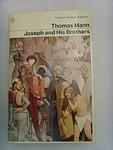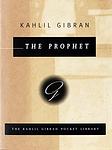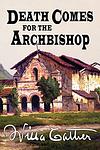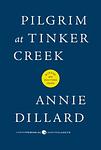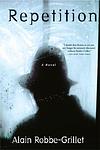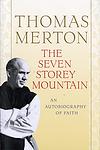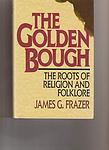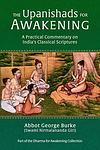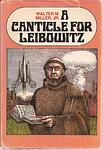The Greatest "Religion & Spirituality" Books of All Time
Click to learn how this list is calculated.
This list represents a comprehensive and trusted collection of the greatest books. Developed through a specialized algorithm, it brings together 300 'best of' book lists to form a definitive guide to the world's most acclaimed books. For those interested in how these books are chosen, additional details can be found on the rankings page.
Genres
The category of "Religion & Spirituality" encompasses books that explore various belief systems, practices, and experiences related to religion and spirituality. This includes books on different religions, such as Christianity, Islam, Buddhism, and Hinduism, as well as books on spiritual practices like meditation, yoga, and mindfulness. The category also includes books on personal growth, self-help, and inspirational stories that draw from religious and spiritual traditions. Overall, the category of "Religion & Spirituality" offers a diverse range of books that explore the human experience of seeking meaning, purpose, and connection with something greater than oneself.
Countries
Date Range
Reading Statistics
Click the button below to see how many of these books you've read!
Download
If you're interested in downloading this list as a CSV file for use in a spreadsheet application, you can easily do so by clicking the button below. Please note that to ensure a manageable file size and faster download, the CSV will include details for only the first 500 books.
Download-
26. Joseph and His Brothers by Thomas Mann
This novel is a re-imagining of the biblical story of Joseph, known for his coat of many colors. The narrative delves deeply into the psychological aspects of each character, exploring their motivations, flaws, and virtues. The story covers Joseph's life from his early years in Canaan, through his betrayal by his brothers who sell him into slavery in Egypt, his rise to power in Pharaoh's court, and his eventual reconciliation with his brothers. The novel is a rich tapestry of dreams, myths, and rituals, blending biblical tradition with the author's own philosophical insights.
-
27. Satanic Verses by Salman Rushdie
The novel follows two Indian actors who miraculously survive a plane explosion, and as a result, find themselves embodying good and evil. As they navigate their new identities, the story also delves into the life of a prophet and his creation of a new religion in a city of sand. The narrative is a blend of fantasy and reality, exploring themes of identity, religion, and the immigrant experience, while also providing a controversial interpretation of Islamic faith and the life of Prophet Muhammad.
-
28. The Prophet by Kahlil Gibran
"The Prophet" is a collection of poetic essays that are philosophical, spiritual, and, above all, inspirational. The central character, a prophet, is about to board a ship which will carry him home after 12 years spent living in a foreign city. Before he departs, he is stopped by a group of people, with whom he discusses topics such as life and the human condition. The book is divided into chapters dealing with love, marriage, children, giving, eating and drinking, work, joy and sorrow, houses, clothes, buying and selling, crime and punishment, laws, freedom, reason and passion, pain, self-knowledge, teaching, friendship, talking, time, good and evil, prayer, pleasure, beauty, religion, and death.
-
29. Tartuffe by Molière
This classic French play revolves around the character Tartuffe, a hypocritical and cunning man who pretends to be deeply pious and religious. He manages to deceive Orgon, a wealthy family patriarch, into believing in his piety. Orgon is so taken in by Tartuffe that he decides to marry him off to his daughter, despite her love for another man. The family works together to expose Tartuffe's true nature, leading to a series of comic and dramatic events. The play is a satirical critique of religious hypocrisy and gullibility.
-
30. The Heart of the Matter by Graham Greene
The novel follows the story of a British colonial police officer stationed in Sierra Leone during World War II. He is an honest and diligent man but finds himself in a moral crisis when he is torn between his duty and his love for another woman. He is caught in a spiral of deceit, corruption, and betrayal that leads to his tragic end. The narrative delves into themes of guilt, faith, betrayal, and moral paradoxes.
-
31. Tao Te Ching by Lao Tsu
This ancient text is a fundamental guide to the philosophy of Taoism, offering wisdom on how to live a balanced, virtuous life in harmony with the natural world and the Tao, the source of all existence. The book explores themes such as simplicity, humility, and non-aggression, emphasizing the importance of understanding and aligning oneself with the Tao. It provides guidance on leadership, personal growth, and spiritual enlightenment, advocating for a life of peace, contemplation, and connection with the universe.
-
32. Life of Pi by Yann Martel
A young Indian boy named Pi Patel survives a shipwreck and finds himself adrift in the Pacific Ocean on a lifeboat with a Bengal tiger named Richard Parker. Over the course of 227 days, Pi uses his knowledge of animal behavior and survival skills to coexist with the tiger, ultimately leading to an unusual and deeply spiritual journey. The story explores themes of faith, survival, and the interpretation of reality.
-
33. Persepolis by Marjane Satrapi
This graphic novel is a memoir that provides a personal account of the author's childhood and young adult years in Iran during and after the Islamic revolution. The story portrays the impact of war, political upheaval, and religious extremism on ordinary people, while also exploring themes of identity, resilience, and the power of storytelling. Despite the harsh realities the protagonist faces, the narrative also includes moments of humor and warmth, providing a nuanced view of life in Iran during this tumultuous period.
-
34. Death Comes for the Archbishop by Willa Cather
This novel follows the life of a Catholic bishop and a vicar as they attempt to establish a diocese in New Mexico Territory. The story highlights their struggles and triumphs over the course of 40 years, dealing with the harsh landscape, cultural differences, and the challenges of faith. It also explores the history and culture of the Southwest, including the influence of Mexican and Native American traditions.
-
35. The Complete Poetry and Selected Prose of John Donne by John Donne
This book is a comprehensive collection of the renowned metaphysical poet's work, featuring all of his poetry and a selection of his prose. The collection includes his sensual and spiritual poems, satires, elegies, and sermons, showcasing his unique blend of intellect and emotion, wit and wisdom. The book offers readers a deep insight into the poet's complex mind and a thorough understanding of his contributions to 17th-century English literature.
-
36. Pilgrim at Tinker Creek by Annie Dillard
This book is a personal narrative of the author's explorations near her home at Tinker Creek in Virginia's Blue Ridge Mountains. The narrative is filled with detailed observations on nature and philosophical musings. It reflects on themes of solitude, the presence of God in nature, and the interconnectedness of life. The author's deep reflections and contemplations about the mysteries and beauty of the world make it a profound meditation on the natural world.
-
37. The Monk by Matthew Lewis
"The Monk" is a gothic novel that explores the tragic downfall of a virtuous and respected monk who succumbs to temptation and sin. The protagonist is lured into a world of lust, greed, and pride by a woman who is actually Satan in disguise. His moral decay leads to a series of horrific events including murder, incest, and witchcraft. The novel serves as a cautionary tale about the dangers of excessive pride and the destructive power of unchecked desire.
-
38. The Praise of Folly by Erasmus
This satirical work is a critique of the practices of the Church and the wider social behavior of the time. Narrated by Folly, the female personification of foolishness, the book humorously criticizes various aspects of society such as superstitious religious practices, scholarly pedantry, and the excesses of the upper classes. The book is a bold critique of its time, using humor and irony to expose the follies of its society.
-
39. The Seven Storey Mountain by Thomas Merton
This book is an autobiography of a man who, after a youth filled with worldly experiences and ambitions, converts to Catholicism and chooses to live his life in a Trappist monastery. His journey from a secular life to a deeply spiritual one is filled with introspection and profound insights about the nature of faith and the quest for a meaningful life. His story is a powerful testament to the pull of spiritual enlightenment and the peace that comes from dedicating one's life to a higher purpose.
-
40. Mere Christianity by C. S. Lewis
"Mere Christianity" is a theological book that explores the common ground upon which all of those of Christian faith stand. It provides an intellectual defense of Christianity that centers on the Law of Nature, arguing that God is behind this law. The book also explores Christian values, the cardinal virtues, and the theological virtues, ultimately arguing for the reasonableness of Christianity. The final section of the book discusses the doctrine of the Trinity and the process of becoming a Christian.
-
41. The Golden Bough by James George Frazer
"The Golden Bough" is a comprehensive study on mythology and religion, exploring the common themes found in different cultures around the world. The author uses a wide range of sources to argue that human belief progressed through three stages: primitive magic, replaced by religion, which in turn was replaced by science. The book delves into various rituals and customs, including the concept of the dying god in mythology and the role of fertility rites in agriculture. The author's theories have had a profound influence on both literature and anthropology.
-
42. Barabbas by Par Lagerkvist
This novel tells the story of Barabbas, the man who was pardoned instead of Jesus Christ, according to the New Testament. After being released, Barabbas grapples with his newfound freedom and the guilt of being spared at the expense of Jesus. As he witnesses the rise of Christianity and the profound impact Jesus' teachings have on those around him, he struggles with his own beliefs and the meaning of his existence. The narrative explores themes of faith, redemption, and the human condition.
-
43. Hadrian the Seventh by Frederick Rolfe
"Hadrian the Seventh" is a novel about a failed Catholic priest, who after a series of unlikely events, becomes the Pope. The protagonist, a bitter and eccentric man, uses his newfound power to make radical changes in the Church, while also settling personal scores. The novel is known for its biting satire and unique exploration of the Catholic Church and papacy.
-
44. Upanishads by Hindu scripture
The book is a comprehensive compilation of ancient Hindu scriptures known as the Upanishads, which are fundamental to understanding the core philosophies of Hinduism. The text delves into profound spiritual teachings and philosophical dialogues about the nature of reality, the self, and the universe, providing invaluable insights into concepts such as karma, reincarnation, moksha, and the ultimate truth of existence. It serves as a guide to spiritual enlightenment and self-realization, offering timeless wisdom for introspection and personal growth.
-
45. Ben-Hur by Lew Wallace
"Ben-Hur" is a historical novel that tells the story of Judah Ben-Hur, a Jewish prince from Jerusalem who is enslaved by the Romans after being falsely accused of an attempted assassination. After years of hardship, he becomes a successful charioteer and eventually gets a chance to take revenge on the man who wronged him. Along the way, he encounters Jesus Christ and becomes a follower. The book is a tale of adventure, betrayal, revenge, and redemption set against the backdrop of the life of Christ.
-
46. Orthodoxy by G. K. Chesterton
"Orthodoxy" is a classic work of Christian apologetics that explores and defends the beliefs that are central to Christian faith. The author presents his personal journey towards faith, arguing for the reasonableness of Christianity. He challenges popular assumptions of his time about religion, faith, and the world while presenting a compelling case for orthodox Christian belief, using both logic and wit. The book combines personal anecdotes, historical critique, and philosophical discourse to present a deeply intellectual and sincere exploration of Christianity.
-
47. A Canticle for Leibowitz by Walter M. Miller
"A Canticle for Leibowitz" is a post-apocalyptic science fiction novel that explores the cyclical nature of history through the lens of a Catholic monastery in the American Southwest. After a devastating nuclear war, the monks of the Albertian Order of Leibowitz work to preserve the remnants of mankind's scientific knowledge until the world is again ready for it. Over the course of centuries, civilization rises and falls, wars are fought, and scientific advancements are rediscovered and then lost again. The novel is a poignant commentary on the potential for humanity to repeat its mistakes.
-
48. The Last Temptation of Christ by Nikos Kazantzakis
This novel presents an alternative interpretation of the life of Jesus Christ, who is depicted as a conflicted, all-too-human figure who struggles with his divine destiny. The book explores his journey through life, his friendships, his fears, and his ultimate temptation to avoid crucifixion and live a normal life. The narrative delves into the psychological and emotional aspects of his experiences, creating a complex, humanized portrayal of a traditionally divine figure.
-
49. The Protestant Ethic and the Spirit of Capitalism by Max Weber
This book is a sociological study that explores the relationship between the ethics of ascetic Protestantism and the emergence of the spirit of modern capitalism. The author argues that the religious ideas of groups such as the Calvinists played a role in creating the capitalistic spirit. The work is noted for its rigorous methodology and its contribution to the broader understanding of the origins and development of capitalism. It has been widely influential across social sciences, especially in sociology and economics.
-
50. The Book of Job by Unknown
"The Book of Job" is a profound biblical narrative that explores the themes of faith, suffering, and divine justice. It tells the story of Job, a prosperous and righteous man who experiences immense suffering as he loses his wealth, children, and health. Despite his trials, Job maintains his faith in God, engaging in intense dialogues about human suffering and divine justice. The story concludes with God restoring Job's fortunes and blessing him more abundantly than before, demonstrating the inscrutable nature of divine wisdom and the rewards of unwavering faith.
Reading Statistics
Click the button below to see how many of these books you've read!
Download
If you're interested in downloading this list as a CSV file for use in a spreadsheet application, you can easily do so by clicking the button below. Please note that to ensure a manageable file size and faster download, the CSV will include details for only the first 500 books.
Download